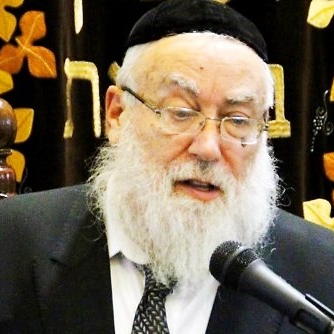
News

Haredi rabbi explains why his community opposes Kotel deal
ANDREW TOBIN
Other than that, though, there is little common ground.
According to Nachum Eisenstein, the chief rabbi of eastern Jerusalem’s Haredi Maalot Dafna neighbourhood, Reform and Conservative Judaism threaten to undermine the survival of the Jewish people.
“The reason why Judaism is the only religion that survived throughout thousands of years and all the massacres and all the attempts to destroy it, is that ours is the only religion that has always been the same, the way it was given to us on Mount Sinai,” Eisenstein said in an interview. “Who gave you, the Conservative and the Reform, the authority to make up a new religion?”
The government’s suspension last week of a deal that would have expanded a non-Orthodox prayer area, has sparked a crisis in Israel-Diaspora relations that some are calling unprecedented.
Major US Jewish groups, led by the Reform and Conservative movements, rushed to Israel to complain that the government of Prime Minister Benjamin Netanyahu had caved in to Haredi Orthodox interests and insulted the Jewish majority that does not subscribe to Orthodoxy.
They also railed against a government-backed bill passed the same day, and since shelved, to grant Israel’s Haredi-dominated Chief Rabbinate a monopoly over all conversions performed in the country.
But like much of his Haredi community, Eisenstein welcomed the Western Wall decision as a victory over non-Orthodox Jewish meddling. And he said the subsequent tabling of the conversion bill was a setback in the same battle.
Interior Minister Aryeh Deri, speaking last week to lawmakers from his Sephardic Orthodox Shas party, explained his camp’s resistance to non-Orthodox Judaism as a question of preservation.
“We have nothing against Jews in any place they may be. They are all our brothers,” he said. “Our fight is against the approach, this ideology which is attempting to bring a new Judaism here, is trying to destroy everything that we built here over the years.”
Haredi leaders often warn against the pernicious influence of non-Orthodox Judaism in Israel and disparage “Reformism”, as they call its adherents in Hebrew. Although as few as five per cent of Israelis subscribe to Reform or Conservative Judaism, according to Pew, about half of Jewish Americans identify with one or the other.
Under pressure from the Haredi political parties in the governing coalition, Israel last Sunday essentially withdrew its support for the Western Wall deal. Non-Orthodox Jewish leaders reacted with outrage.
“We love the State of Israel and will continue to do so. But we will not sit idly by while the State of Israel delegitimises us and frankly says to the Jews of North America and the Jews of the world: ‘You do not matter’,” Rabbi Rick Jacobs, head of the North American Reform movement, said on June 26 at the Knesset.
The Jewish Agency, which brokered the Western Wall deal on behalf of the Israeli government, took an unprecedented public stance against its reversal, and major Jewish groups warned of an erosion of support for the Jewish State.
But Eisenstein, who immigrated to Israel from Chicago decades ago, doubts the sincerity of the protestations, saying they were about politics, not religion. He said Reform and Conservative leaders do not represent their constituents, who generally “don’t pray”. and any way prefer to be part of Orthodox prayer when they visit Israel.
“Just a few leaders, carrying big salaries, want to use the Kotel to get recognition.”
As far as concerns about a loss of American Jewish backing for Israel, Eisenstein said: “Anyone who threatens to withdraw his support from Israel doesn’t really love the state anyway.”
He said Western Wall Rabbi Shmuel Rabinowitz had made a mistake by initially backing the agreement, as had any Haredi politicians who may have consented to it.
“We did not agree to any compromise. Anyone who agreed to compromise, you have to speak to him. Who gave him the authority to do that?” Eisenstein said.
Non-Orthodox Jews have visited the pluralistic prayer space at the southern end of the Western Wall, popularly known as Robinson’s Arch, since Israel recognised their right to do so in 2000.
In 2013, Naftali Bennett, in his capacity as Diaspora Affairs Minister, built a larger platform there as part of what he called an “interim” solution. Bennett last week said the platform would still be expanded and made more permanent.
Asked about this ongoing supposed desecration, Eisenstein said Haredi opposition to the Western Wall deal was fundamentally about staving off state recognition of non-Orthodox Judaism.
The conversion bill requires the government to only recognise for immigration purposes conversions in Israel overseen by the Chief Rabbinate.
Although the bill would only affect the small number of foreigners who convert to Judaism in Israel each year, and not non-Orthodox conversions performed overseas, it would for the first time grant a degree of Knesset recognition to the Chief Rabbinate’s de facto monopoly on deciding who is a Jew.




